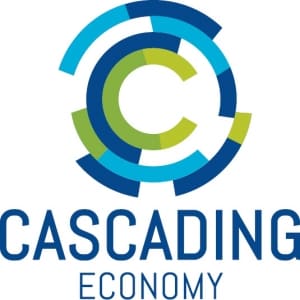BE Group of Companies
Entrepreneurs use opportunities to satisfy needs. To do so, they need resources, raw materials from which products and services are created. The BE Group does both in a systemically sustainable way: it often uses supposed waste as a starting point for new business models; and it focuses on livelihoods. A major focus is on nutrition, as this is the source of 30-40% of our ecological footprint. Precious mushrooms, for example, are now grown on coffee grounds in a dozen European countries, after Chido’s mushrooms pioneered the model in Berlin in 2010.
StadtFarm produces fish, vegetables and tropical fruits in urban areas, i.e. close to the consumer, with less than a fifth of the conventional ecological footprint. Food has a complex value chain that is difficult for consumers to understand. From seeds to breeding under optimal conditions, then the cold chain via several trade and logistics partners. Today, all this requires sensor technology, data and machine learning.
BE Bots develop not only tailor-made automation for agriculture 4.0 and block-chain-based goods flows, but also robots that can take over 24/7, e.g. pest monitoring and control. But for food to flourish in the fields, our soils must become healthy and sustainable again. Soil recarbonisation is achieved by means of activated carbon – obtained from residual wood and green waste that has no place in composting plants.
That’s why the group has designed a solution for recarbonizing soils. It is done by means of activated carbon – obtained from residual wood and green waste that no longer finds a place in composting plants. To this end, Carbon Loop Technologies has developed an unbeatably efficient pyrolysis method that produces charcoal so cheaply that it can be used across the board. At the beginning of 2020, we sold the technology to an investor from the agricultural sector.
Recently, BE Solutions has again been strongly dedicated to the topic of solar in the energy sector. With AgroSolar Europe, it is developing cutting-edge technology in the field of combined agriculture and energy together with renowned partners.
In the BE Group we have conceived, tested and in part implemented dozens of such ideas and models in an entrepreneurial manner. But we cannot do everything ourselves – and we want others to benefit from our wealth of experience. That is why BE Solutions & Blue Systems Design GmbH is our management consultancy for sustainable, competitive innovations and value-added processes. In doing so, we focus on the basic principle of systemic sustainability: every waste is a source of new ideas. The business models developed with our analysis and design tools, similar to the BE Group’s partners’, make use of local resources, create jobs and provide both economic and social impulses by focusing on the participation of all stakeholders. This creates new future perspectives for companies, citizens and communities.
The main focus of BE Solutions’ work is:
- Development of participative, sustainable business models
- Conception of systemic, cascading value chains (input-output analyses of material flows & their translation into economic potential)
- Innovation support for companies, especially SMEs
- Strengthening the resilience of regions, especially in rural areas

